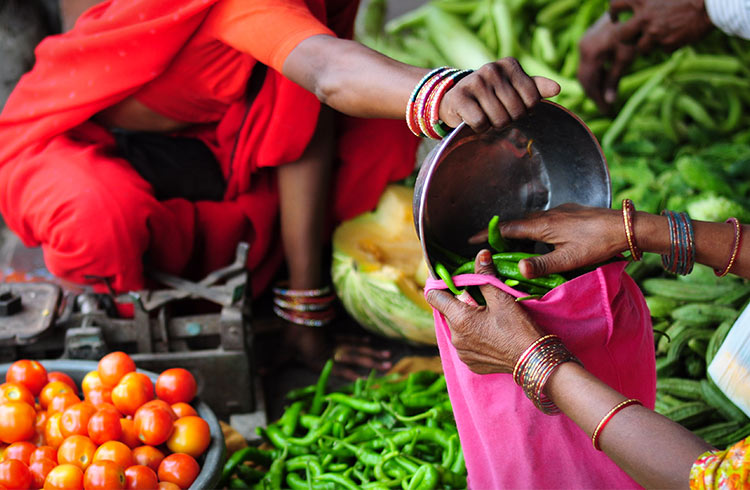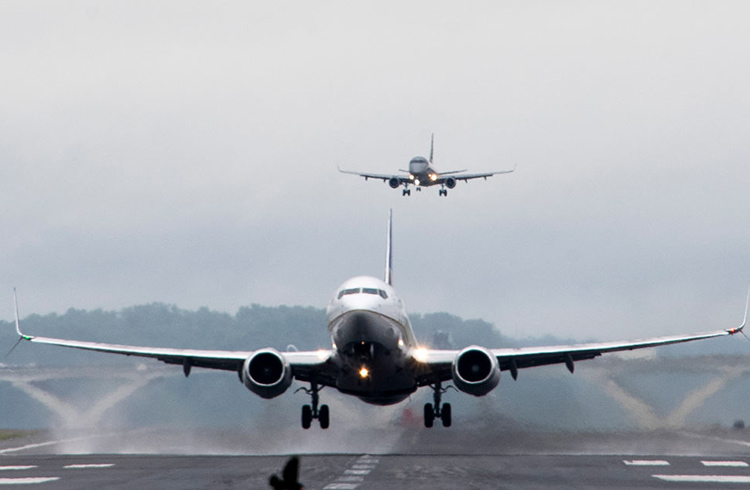Top 10 Tips for Eco-Friendly Travel
Intrepid Travel shares its top 10 practical tips for environmentally friendly travel.
 Photo © Getty Images / © RAZVAN CIUCA
Photo © Getty Images / © RAZVAN CIUCA
It's one thing to want to be more eco-friendly, but it's sometimes hard to put that into action. Eliza Anderson of Intrepid Travel reveals 10 practical tips for environmentally friendly travel that are easy to achieve.
1. Don't bag it
You want memories of your holiday to last for years, but 500 years is far too long. Plastic bags can take that long to biodegrade so take a re-useable shopping bag with you when you go to local markets.
2. Pack lightly
Every kilo counts when flying. The more a plane weighs, the more carbon emissions it produces. Pack only what you need - the environment will thank you.
3. Share the load
Taking public transport is one of the best things you can do for the environment when traveling. It means you're not creating any additional carbon emissions from private transport. It will also add to your travel experience, providing you with opportunities to interact with locals.
4. Travel overland
Cut out just one five-hour flight and your carbon footprint will be a tonne lighter. And you'll get to see more of the countryside too!
5. Enjoy a near beer
Drink a locally brewed beer and not only will you probably enjoy a high-quality ale, but your drink can be low-carbon by cutting down on 'beer mileage.' This applies to eating local produce too. Let your taste buds be adventurous – it's carbon-friendly!
6. Be at home in a hotel
A great tip is to remember to act in a hotel like you would at home – avoid getting clean towels when not necessary, don't have long showers and remember to turn off TV, lights and aircon when you leave the room.
7. Choose a carbon-offset adventure
Not all carbon emissions can be avoided whilst traveling. Intrepid Travel has a range of adventures that it has calculated the carbon emissions for, reduced wherever possible and offset what remains. The emissions from transport, accommodation, activities and waste have been accounted for and the cost of offsetting is included in the cost of the trip.
8. Avoid bottled water
Plastic bottles account for a lot of waste. Intrepid Travel has worked with hotels in Asia to install water filters that travelers can use to fill re-usable bottles with safe water.
9. Stick to the path
When hiking, always stay on marked trails and maintain a safe distance from any animals you encounter. Going off the beaten path could mean you trample on protected or endangered plants.
10. Power in numbers
Smaller groups tend to have less of an environmental impact, so travel with a small group tour operator that's environmentally responsible. Before you book, ask what size the group will be. While you've got their attention, why not also ask how the operator gives back to the community you'll be visiting.
About the Author
Intrepid Travel is committed to traveling in a way that is respectful of local people, their culture, local economies and the environment. With the participation of their travelers, they can help conserve the areas they visit and bring positive benefits to the host communities.
Listen to the World Nomads podcast
Related articles
Simple and flexible travel insurance
You can buy at home or while traveling, and claim online from anywhere in the world. With 150+ adventure activities covered and 24/7 emergency assistance.
Get a quote


18 Comments
10 great tips. We're loving No.4 Travel Overland!
Purchasing locally produced food is another eco-friendly travel advice. This is because locally grown food has less food miles and carbon footprint. If you could spare time, visiting the local market is also a good option.
Le blog est unique qui est fournir le matériau agréable. S'il vous plaît poster des articles les plus intéressants ici.<br><a href="http://www.trustedmontre.com">replique montre de luxe</a>
Being environmentally aware is so important! So is traveling and seeing the world. Latin America is a great place to tour and we can help you with that. http://vipjourneys.com
Bicycle tours are a great way to experience the world without poisoning the environment. Start with short trips a weekend in a local area maybe on a bike trail. Pack very light only what you need. Enjoy being outside seeing thing you have overlooked because you were going to fast. Eat out if it is what makes you happy by biking you saved some money. But it can be just as much fun to shop along the way and have a picnic at a pleasant location.
We started by riding on a fund raiser for the American lung association, which gave us the comfort of knowing that we had support if we needed it. We have taken 4 tours in Europe and 2 to Canada on our own. 30 years of cycling so far and planning for Europe again next summer.
Thanks guys, great ideas.
One additional hack to make your travel more environmentally friendly is booking via B'n'Tree. It basically combines your #7, as every time you book a bed, one tree is planted.
Great news: The planted tree doesn't cost you a single Cent!
The project has already become a major success in many countries - together we can increase the impact even further!
Details on: https://ceekaiser.com/saving-the-planet/bntree-you-book-a-bed-we-plant-a-tree/
Hope you love the project as much as I do...
Keep up the great work!
Yes! Love number 5. Drink the local beer!
Local beer, local food, local people! That's the whole point of going somewhere new.
Also great that water filters in hostels are becoming a thing. Waaaay too many plastic bottles in circulation.
We've got a water bottle with a filter built into it too for those times where there's only tap water. So handy for travels around Asia!
Hi,
I love travelling and I make 2 family overseas trips a year.
I thank you for giving incredible advise on every single details of travelling.
Despite my own travel experience I have learned so much from your article. The most useful is first one (to make travelling top priority ) . I have 2 kids, and my next trip will be very much different with your great tips.
very nice place and recommended to visit, if you wanna try visit Bali Island you can book cheap hotels in Bali
I like how your article surrounds the idea of not leaving a big nomad footprint wherever you visit. A lot of items like bottles, plastic bags, and reckless off-road/path traveling can cause long term damage to the area you visited for such a short time. I will have to be more careful with what I bring with me on my travels.
Great ideas! And here is also an easy way to care about our planet while traveling! For every booking that originates on bedandtree.com, one tree is being planted - without any charge to the user. Cooperation partners include the world's largest booking platforms, such as Booking, Skyscanner, Expedia, TripAdvisor etc, hence you can plant trees when booking hotels, flights, cruises, rental cars etc.
It doesn't cost you a single Cent, just one click of your mouse:)
Hey,
Thanks for this good blog entry.
I'm working on my own on atravel router app as a hobby, which displays an estimation of the CO2 emission of a planned iternary. Besides it gives you tip to reduce the CO2 emission.
You find it here: https://yourtravelroute.com/create
Greetings
How about not traveling and instead appreciating what's around you. That local beer is hardly going to make a dent on the tons of carbon that you voluntarily emitted by traveling half way around the world to drink it. Wherever you are, there's plenty of things around you that are appreciated all the more when you aren't thinking about presumed greener grass in other places.
Thank you for reminding me that plastic takes around 500 years to be fully biodegraded and our younger generation might suffer from it. My sister and I are thinking of some simple things that we can do to reduce production waste after realizing how much we actually produce in a year. It might be better to invest in some BPA-free stainless steel tumblers that we can use every time we order beverages outside the house instead of plastic cups.
https://www.costabluebottle.com/
Nice article. I always travel with my backpack (No. 2 Pack lightly) and didn't know that this helps the environment.
https://doubletravel.biz/
This is such a great article, I always aim to travel sustainably and learn about the local land around me as I do so. I make a guide every month highlighting the local ecology of the place I am travelling in, you should check it out if youre interested :) we also donate 1% of our profits to climate change initiatives! https://naturefolx.com/guides
This is really helpful! I agree with all these practices listed in this article.
It might sound impossible to go eco-friendly while traveling but it's good progress to go green for a change. And also, it does make you feel less guilty while wandering around.
Thanks for sharing your tips. Finding information online about eco-friendly travel is a challenge. Therefore sharing info about how my initiative can help to move traveling in a more eco-friendly direction.
When needing to fly, choosing direct flights is often the most eco-friendly travel option, compared to flying indirect.
There are however not always direct flights from your city to your destination. Taking the train or bus to a reasonably near city from where there is a direct flight is usually better than flying indirect. But how to find the good candidate cites to search from and to?
I'm working on a solution for finding such flights automatically. It's called PanFlights. It will help you plan effective trips using a combination of flights and overland transport, resulting in lower emissions for trips from A to B.
Say you're planning to go from Oslo in Norway to Glasgow in Scotland. With trains solely that's a jolly long ride. Our travel planner can instead suggest that you take the train from Oslo to Stavanger, then a short flight across the North sea to Aberdeen, and finally a train to Glasgow.
Since there are no direct flights from Oslo to Glasgow, a typical alternative is to fly indirect via London or Amsterdam, creating considerably higher emissions.
You can plan your own trips at https://panflights.com. I hope you will check it out, and please share the word to help other people travel with reduced emissions.